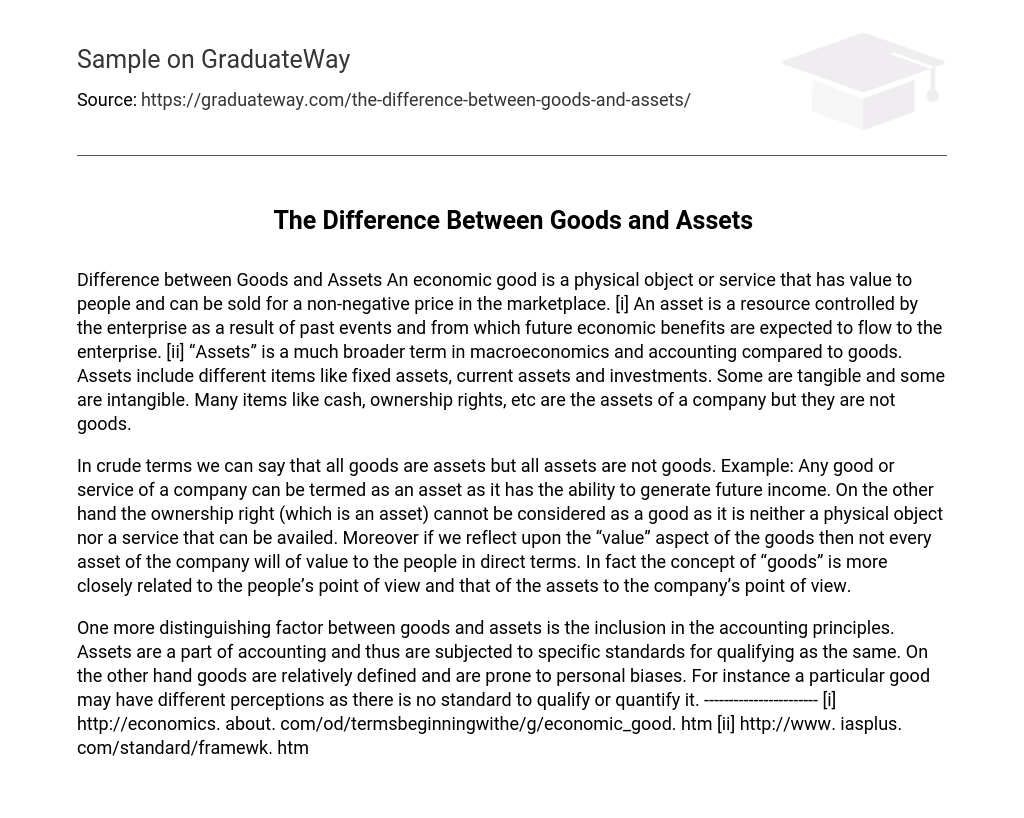Difference between Goods and Assets An economic good is a physical object or service that has value to people and can be sold for a non-negative price in the marketplace. [i] An asset is a resource controlled by the enterprise as a result of past events and from which future economic benefits are expected to flow to the enterprise. [ii] “Assets” is a much broader term in macroeconomics and accounting compared to goods. Assets include different items like fixed assets, current assets and investments. Some are tangible and some are intangible. Many items like cash, ownership rights, etc are the assets of a company but they are not goods.
In crude terms we can say that all goods are assets but all assets are not goods. Example: Any good or service of a company can be termed as an asset as it has the ability to generate future income. On the other hand the ownership right (which is an asset) cannot be considered as a good as it is neither a physical object nor a service that can be availed. Moreover if we reflect upon the “value” aspect of the goods then not every asset of the company will of value to the people in direct terms. In fact the concept of “goods” is more closely related to the people’s point of view and that of the assets to the company’s point of view.
One more distinguishing factor between goods and assets is the inclusion in the accounting principles. Assets are a part of accounting and thus are subjected to specific standards for qualifying as the same. On the other hand goods are relatively defined and are prone to personal biases. For instance a particular good may have different perceptions as there is no standard to qualify or quantify it. ———————– [i] http://economics. about. com/od/termsbeginningwithe/g/economic_good. htm [ii] http://www. iasplus. com/standard/framewk. htm





